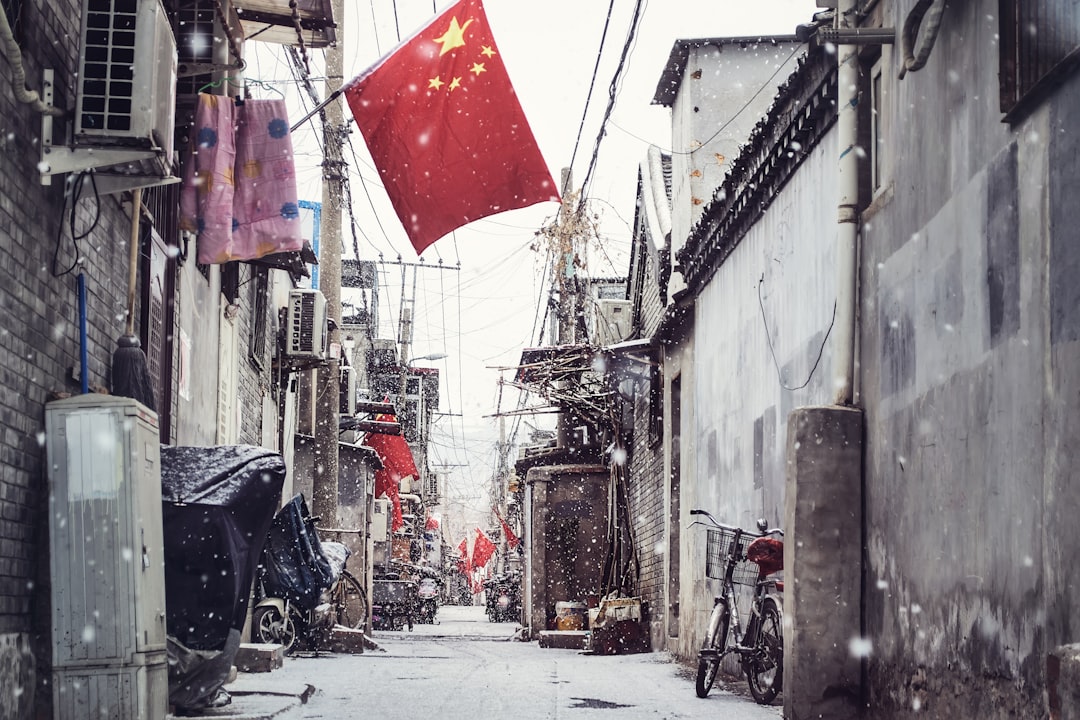alt: China flag near building
title: Chinese Economic Policy
Meta Description: Explore the intricate logic behind China’s state capitalism and its impact on global market strategies in our latest analysis.
Introduction
China’s economic landscape has undergone a profound transformation in recent years, shifting from market liberalization to a more state-controlled model. This evolution in Chinese economic policy has significant ramifications for global markets, affecting multinational corporations, foreign investments, and international trade dynamics. Understanding these changes is crucial for businesses aiming to navigate the complexities of China’s state capitalism and leverage the opportunities it presents.
The Evolution of China’s Economic Policy
From Market Liberalization to State-Control
Historically, China embraced market liberalization and economic reforms, especially after joining the World Trade Organization in 2001. This period, characterized by bottom-up, decentralized reforms, spurred rapid economic growth and positioned China as a global manufacturing powerhouse. However, the recent pivot towards state capitalism marks a significant departure from this trajectory. Under the leadership of Xi Jinping, China has intensified state intervention in the economy, emphasizing self-reliance and reducing dependence on foreign entities.
The Dual Circulation Strategy
Central to this shift is the “dual circulation” strategy, which focuses on bolstering domestic consumption and innovation while maintaining a robust engagement with the global economy. This strategy aims to create a more resilient and self-sufficient economy by fostering indigenous innovation and strengthening internal markets. The emphasis on Chinese economic policy now prioritizes internal growth engines over external dependencies, a move that has far-reaching implications for international businesses operating in China.
Impact on Private Enterprises
Increased State Oversight and Control
The Chinese government’s tightening grip over the private sector is a cornerstone of its evolving economic policy. Private companies, which once thrived with a degree of autonomy, are now subject to increased state oversight. The introduction of Communist Party committees into private firms and the enforcement of state directives reflect a broader strategy to align private enterprise with national objectives. This heightened control aims to mitigate perceived threats to the Communist Party’s authority but also introduces new challenges for private businesses striving for innovation and growth.
Crackdown on Major Corporations
High-profile cases, such as the halt of Ant Group’s IPO and the imposition of anti-monopoly fines on Alibaba, illustrate the extent of state intervention. These actions are not merely regulatory but are indicative of a broader strategy to ensure that large private enterprises do not overshadow state-owned entities. The repercussions of such policies extend beyond corporate governance, influencing market dynamics and investor confidence.
Implications for Global Markets
Challenges for Multinational Corporations
Multinational corporations operating in China face a complex environment shaped by stringent Chinese economic policy. The requirement to conform to state directives, coupled with political pressures, creates an unpredictable business landscape. Companies like Nike and United Airlines are now urged to navigate these waters carefully, balancing market access with compliance to local regulations and political expectations.
Opportunities and Adaptation Strategies
Despite the challenges, the evolving Chinese economic policy also presents opportunities for foreign brands. Businesses that can adeptly align their strategies with China’s state-driven objectives may find new avenues for growth. This requires a deep understanding of the local market, cultural fluency, and the ability to adapt to regulatory changes swiftly.
Ripple Marketing’s Role in Navigating Chinese State Capitalism
Methodology: Assess, Adapt, Activate, Amplify
Ripple Marketing Ltd. specializes in assisting brands to successfully enter and thrive in the Chinese market amidst its state-controlled economic landscape. Our four-phase methodology—Assess, Adapt, Activate, Amplify—provides a structured approach to minimize risks and maximize opportunities. By thoroughly assessing market conditions, adapting strategies to align with local preferences, activating tailored marketing campaigns, and amplifying brand presence, we ensure sustained growth for our clients.
Leveraging the Ripple Framework for Success
Our proprietary Ripple Framework integrates cultural insights with strategic market entry tactics, enabling brands to engage authentically with Chinese consumers. Supported by a bicultural team and a customizable Ripple Dashboard for real-time performance tracking, Ripple Marketing equips businesses with the tools and insights necessary to navigate the complexities of Chinese economic policy effectively.
Conclusion
China’s shift towards state capitalism represents a pivotal moment in global economic dynamics. As Chinese economic policy becomes more interventionist, businesses must adapt to sustain their presence and capitalize on emerging opportunities. Understanding the underlying strategies and implications of this transition is essential for navigating the evolving market landscape.
Call to Action
Ready to navigate the complexities of China’s state capitalism and unlock new market opportunities? Partner with Ripple Marketing today to transform your market entry strategy into a structured growth engine.

Leave a Reply